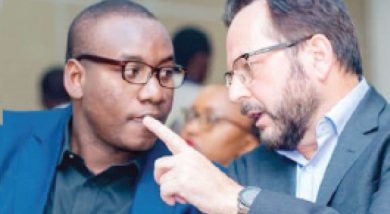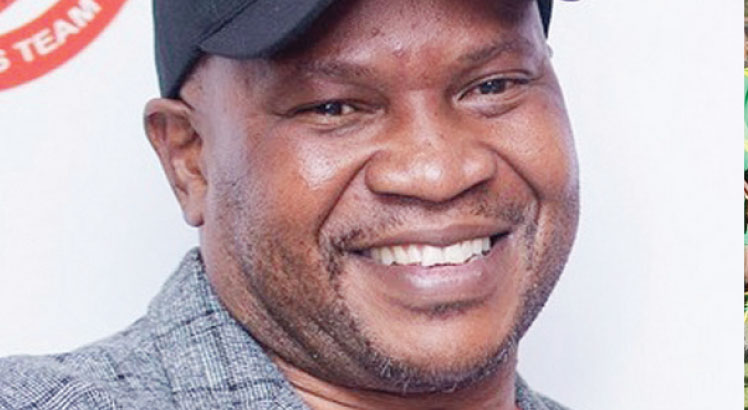Have Malawians lost hope in democracy?
Democracy means different things to different people. According to an online publication www.reference.com, democracy has many characteristics, which include majority rule, individual rights, free and fair elections, tolerance, participation and compromise.
The publication states that democracy is based on the idea of the people having a say in who governs and rules them, making participation one of the most important characteristics in the system.

However, Michael Bratton and Nicholas van de Walle of the Michigan State University and authors of a book titled Democratic Experiments in Africa Regime Transitions in Comparative Perspective emphasises that a transition to democracy can be said to have occurred only when a regime has been installed on the basis of a competitive election, freely, credibly and fairly conducted within a matrix of civil liberties, with results accepted by all participants.
Bratton and van de Walle say free, fair, credible and competitive elections are supposed to form an essential feature of a democratic system that can be held accountable.
Malawi is one of the 41 out of 47 countries in Sub-Saharan Africa, which underwent significant political reform, including in many cases the first competitive elections in a generation between 1989 and 1994.
Malawi attained the rule of multiparty democracy in the early 90s after over 30 years of the Malawi Congress Party (MCP) and late Dr. Hastings Kamuzu Banda.
The country held its first post one-party regime general election on May 17 1994. The election registered the highest voter turnout ever.
Regrettably, the number of Malawians actively participating in elections, particularly through voting, has been dwindling over the years.
And from this point of view, one can argue that Malawi has not made real transition to democracy as evidenced by the poor elections held since the country reverted to democracy in the 90s.
All elections have been preceded by abnormalities: a constitutional crisis, erosion of the rule of law, a threat to civil liberties due to issues like the Open Term Bill before the 2004 elections, and the flagrant violation before the 2009 2009 elections of Section 65 of the Constitution that deals with the crossing of the floor by elected members of Parliament (MPs).
During the 2010/11, the future of democracy in Malawi hung in the balance, with Bingu wa Mutharika abusing the popular mandate given to him through the 2009 elections by resorting to a series of violations of the Constitution and erosions of democratic order.
Malawi does have a history of post-electoral violence on a large scale, but electoral outcomes of two elections (1999, 2004) were contested in court on grounds of irregularities and flaws in the management of the electoral process, whilst the conduct and outcome of the 2014 elections have drawn wide criticism and concern from contenders as well as key stakeholders.
In the lead-up to the elections, there were predictions of violence, which were proved correct in the instances of the murder of a senior policeman and the shooting of one civilian at a political rally just days before the official electoral campaign started.
This begs a question: What has gone wrong? What is it that leaders are not doing or are failing to do to sustain the transition?
A recently published book The Malawi 2014 Tripartite Elections: Is Democracy Maturing observes that the development in Malawi’s quality of democracy since the reintroduction of multipartism in 1994 has been disappointing.
Nandini Patel and Michael Wahman say in the book, which has been published by Nice and Institute for Policy Interaction (IP) with financial support from the European Union (EU), that ever since 1994, the level of democracy has been declining.
“Democracy is highly correlated with economic development and given the Malawi’s relatively low level of social and economic development, one might argue that Malawi is somewhat exceeding expectations when it comes to democratic governance,” they say.
Of course, Patel and Wahman note in the book that the local democracy has continued to score a mark both on the continental and global scene.
It is scoring slightly above the global average and significantly higher than the African [average].
The two say with a democracy score of 6.9, Malawi just falls short of the 7.0 threshold to categorise a country as a democracy.
This notwithstanding, European Union (EU) Ambassador to Malawi Marchel Gerrmann said at the launch of the book in January 2016 that Malawi’s flag flies high as far as democracy peace is concerned and it is a shining example in Africa and beyond.
Germann said EU subscribes to the notion that continued peace and democracy are a prerequisite to taking any country on a long term path of social economic development.
“My assessment is that Malawians have, through the 2014 tripartite elections, demonstrated their full understanding of the fundamental principles and tenets of democracy,” he said.
Former vice-president Justin Malewezi, also speaking at the same function, observed that there is a desire in Malawians are to nurture and grow their hard-earned democracy.
Malewezi said in 2000, Malawians developed the Malawi Vision 2020 whose catchphrase ‘democratic maturing’ is explicitly mentioned in the summary wording of Vision 2020.
“It was envisaged that by the year 2020, Malawi would be democratically mature, environmentally sustainable, self-reliant with equal opportunities for and active participation by all, having social services, vibrant cultural and religious values and a technologically driven middle-income economy,” he explained.
Malewezi emphasises that as the countdown to 2020 continues, this is probably the most critical time for each Malawian to be probing themselves about the role they are going to take to contribute to the growth of democracy.
He further advises citizens to unite as a family founded and nurtured upon principles, tenets and values of democracy, which require that every member of the society has moral obligation to help it grow. n





